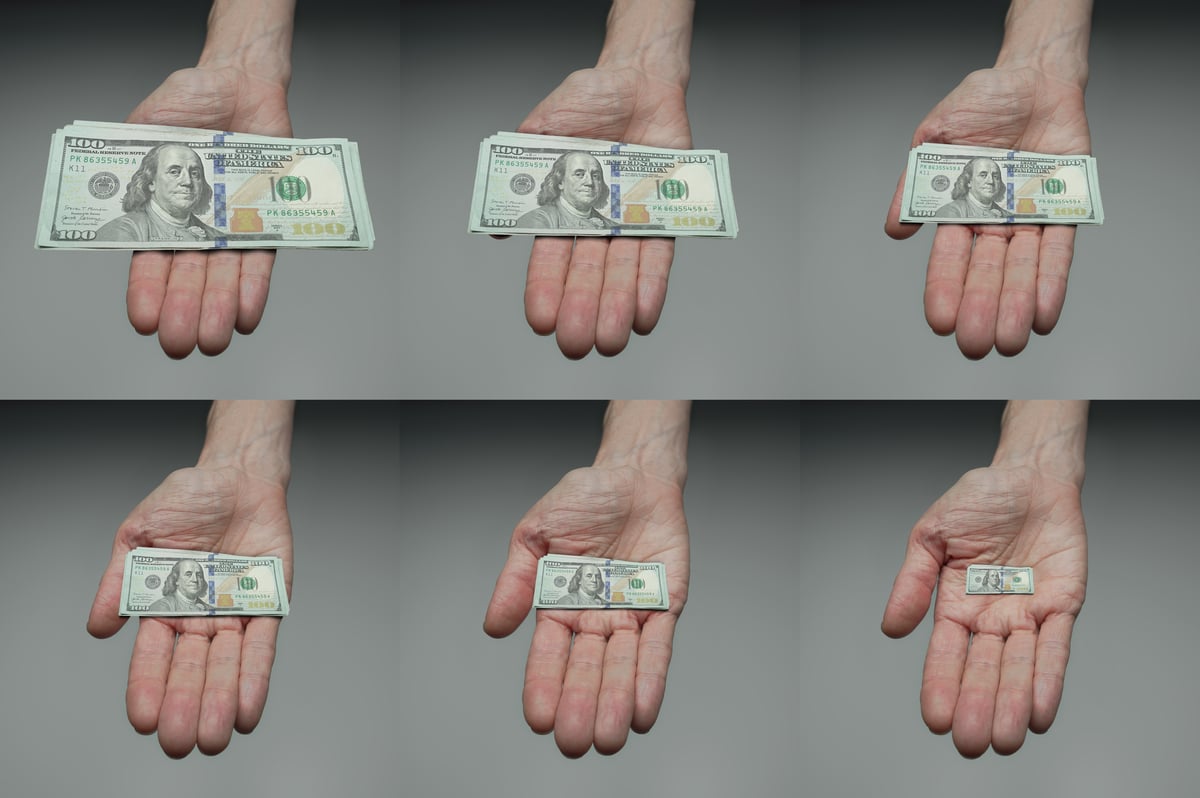Walgreens Boots Alliance (WBA +0.00%) has been a difficult stock to love for a few years, thanks to multiple corporate missteps. It got so bad that the board decided the best course of action was to effect a turnaround under private hands. That deal means that Walgreens won't be a publicly traded company a year from now. But that isn't the whole story, and more aggressive investors might still be interested in the stock because of a unique nuance of the take-private transaction. Here's what you need to know.
From industry giant to going private
There are only a handful of large pharmacy retailers, and Walgreens is one of them. For many years it was a growth business, but eventually the market became saturated. Often there was a Walgreens on one corner and one of its competitors just across the street. It's not shocking that growth stalled out throughout the sector.

Image source: Getty Images.
What happened next was that Walgreens looked for other ways to keep growing its business. It tried to buy into the pharmacy benefits management business, but that didn't go as well as hoped. And then it started to build out a healthcare clinic operation, but that didn't go as well as hoped. This company, which was on track to become a Dividend King, ended up cutting and then eliminating its dividend (the elimination came after the take-private agreement came about).
Walgreens had recently been working to right-size its business, including closing locations. However, the revamp is likely to be a large undertaking that will be difficult to effect in the public markets. Investors don't like it when companies shrink, and that's exactly what Walgreens is in the process of doing. So, in early March, it agreed to be taken private by Sycamore Partners Management for $11.45 per share. The transaction is likely to close sometime in the second half of 2025.
Why is Walgreens trading for more than the deal price?
Normally in a takeover situation, the stock of the company being acquired trades for slightly less than the takeover price. That's because there is always a risk that the deal falls apart. However, Walgreens' shares are trading hands for slightly more than the takeover price, which suggests that there is something odd going on here.

NASDAQ: WBA
Key Data Points
The wrinkle is that Sycamore Partners is planning on selling Walgreens' medical clinic business. And it will give Walgreens shareholders a chit that could be worth up to $3 per share, depending on the sales price it gets for the clinic business. So investors that are paying over $11.45 per share for Walgreens right now are, essentially, buying that chit, since they are locking in a loss on the Walgreens shares.
There's just one problem. There is no timeline for the sale of the clinic business. And there is no guarantee on the price that Sycamore Partners will extract from the buyer. So the $3 chit could be worthless or, conversely, the length of time it takes to see any money could be very long, reducing the time value of the potential profit. There's just no way to tell what the outcome will be.
And, as such, buying Walgreens today is not something that most investors should do, particularly if they are conservative by nature. More aggressive types that like special situations may like it, since the clinic business probably does have some value. But it is still a high-risk play that has a maximum upside of around 25%. That sounds like a lot, and it is, but only if the cash arrives quickly.
Walgreens will be gone in a year, but not forgotten
In one year, Walgreens will no longer be a public company. But it will linger in the minds of investors because of the $3 chit tied to the sale of the medical clinic business. That said, in the long term, it seems highly likely that Walgreens will eventually go public again -- with completely different shares -- hopefully with a better industry position. However, only aggressive investors should be looking at Walgreens right now.





